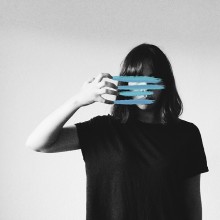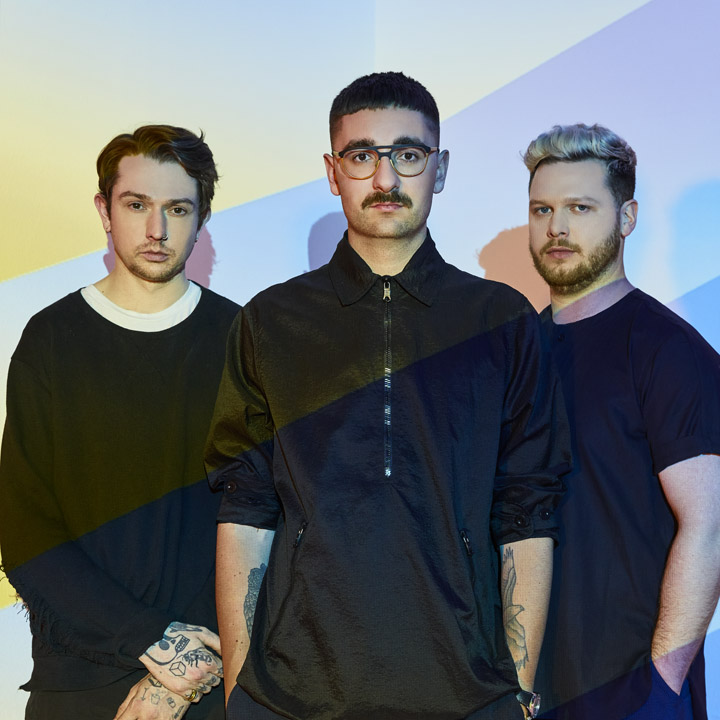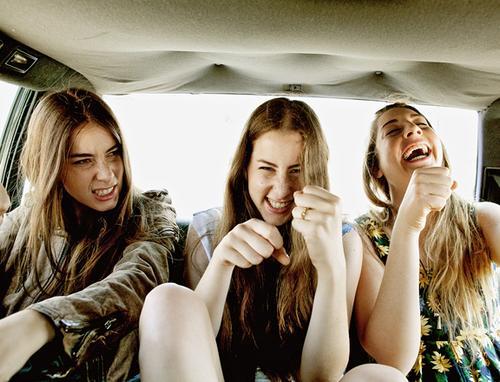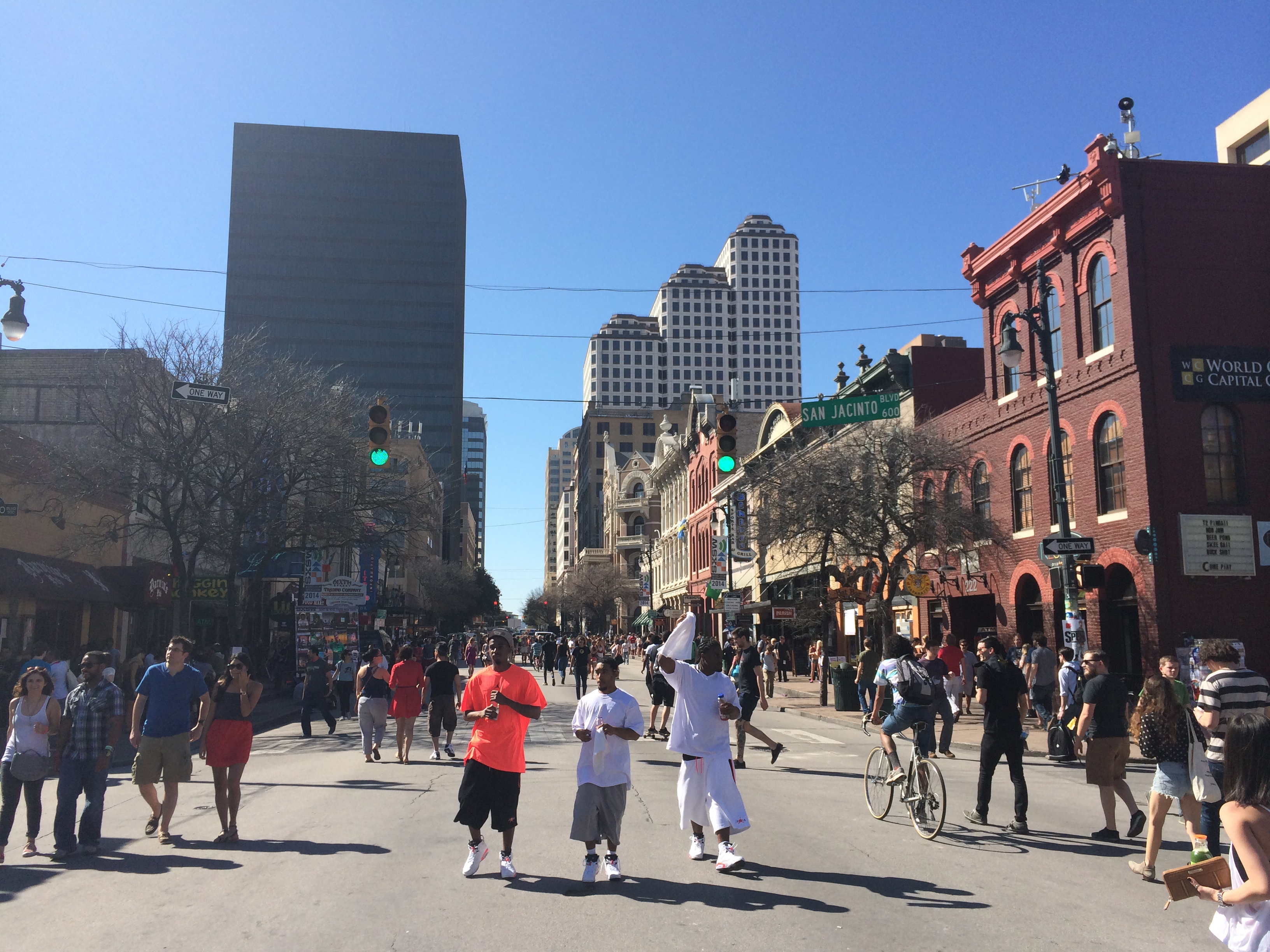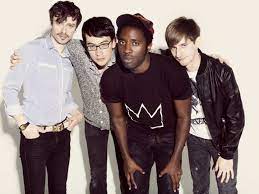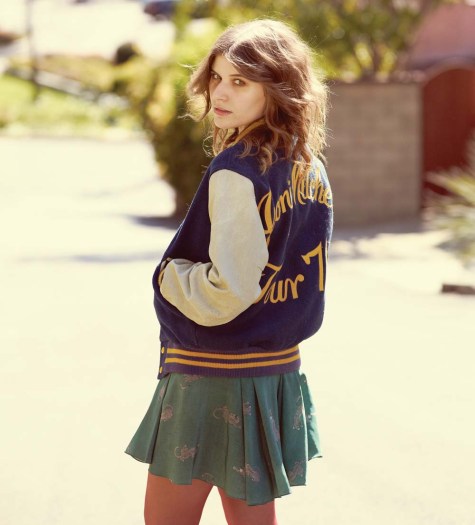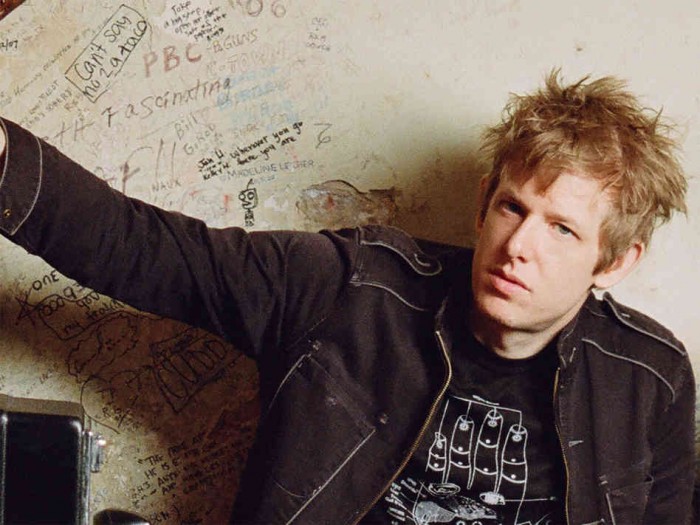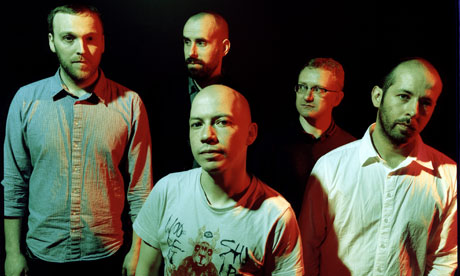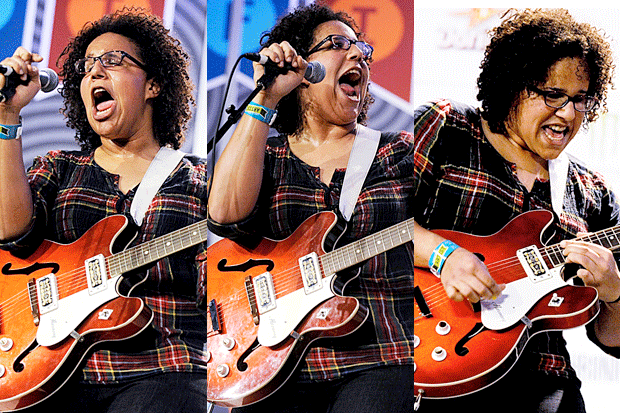The San Francisco duo have released the first album in 5 years and seems like they have definitely recharged their batteries. The new album is called The Bloom And The Blight and it’s as powerful as it can get. They have an almost unique style that leads them to be compared to huge acts like White Stripes and The Black Keys. But if you listen with care you get to realize that they’re following a different path. Adam and Tyson has been friends since they were 5 years old, and they’ve been playing together for more than 10 years now. ROCKAST had the chance to sit and talk to them during their last visit to Spain:
It’s 5 years since your last album, in these 5 years you both released your own records, but has that influence somehow the recording of the new album?
TYSON VOGEL: Well the studio is not the most comfortable place for us, but I think recording different records allowed us both to kind of explore the studio in a different form. So it definitely informed our approach recording this record.
On The Bloom And The Blight, you have worked with a big producer like John Congleton, how was the experience with him?
ADAM STEPHENS: It’s great; he’s a very smart man, very insightful experience. It was a pleasure to work with him and we had fun.
Is it that essential to have the right producer on each album? Does he make a really big difference?
AS: Well I think the term producer is kind of a big term, because traditionally producer would have a lot to do with the arrangements of the songs, and how a certain song was actually composed in some ways, but we kind of do all that, he more or less was kind of, guiding us along. If we had any doubts about something he would help us. If Tyson and I didn’t like agree on something, he would kind of be like a third voice, and help us moving on direction, which is very helpful you know?
You started on Alive Records, then Saddle Creek and now with Dave Matthews’s ATO Records, do you kind of distrust the big record companies?
TV: Absolutely. But most of our approaches kind of, just wanted to be in an artistic environment, with people that innovate, and have creative ways of promoting music and culture. I mean Dave Matthews really doesn’t have anything to do with ATO, apart from that he started and he invested on it, but he’s basically a partner you know? ATO is run by a group of 15 really good folks.
AS: Is more like a personal relationship, we wanted to feel at home somewhere and be friends with the people that we’re working with. I don’t think we would have that kind of relationship on a larger label.
“The live show is probably the best way to convince the audiences”
How is the writing process? Do you pretty much build the songs together I guess?
TV: Yeah I think it changes song by song. It’s never really consistent you know?
Where do you get the inspiration from?
TV: Survival.
You got to play lots of concerts in house parties, bars, even in the street… How is the experience? Do you think every musician should play on places like these before anything else?
AS: I mean I don’t think everyone plays proper music for that environment. It’s good to start with humble beginnings in music, to have to go through a lot of struggles, and play a lot of really shitty shows. You kind of acquire a sense of gratitude for any accomplishment that you get. But those shows were like the most fun shows. We didn’t make any money ever, but we learned how to play basically, or how to performance and how to put out a show. Just being that close to an audience, when you’re playing at someone’s house, or a small little room you know, all sweating together meaning on each other it’s a pretty powerful experience, to be either playing or even just watching.
Do you miss it?
AS: Yeah well, the thing is that we also did like 3 US tours like that, playing houses and art spaces and whatever we could really, and it was hard you know, like a lot of times we would show up to a town and nobody would come, or there wouldn’t even be a show, or the guy who organized it just forgot about the show, or playing in his living room with him or one guy with his brother or something like that…
TV: Smells
AS: We still do that stuff whenever we can, mostly in San Francisco, houses and stuff.
Do you try to reflect the vibes of your gigs on your albums?
TV: I think that we try to be as honest as possible on the record. Each record that we’ve made has been an attempt to capture that feel, like a live environment. On live performances things change, the environment etc… so we try to find that little ground of control. The live show is probably the best way to convince the audiences.
Have you ever thought of adding an instrument or a member to the band?
AS: We did it when we started, but we went on as a duo and as we were playing shows people were thinking that it was good, so it wasn’t like we decided it that way ,it was just we were just playing, playing and playing and we realized that it was working so… whatever.
Seems like Brooklyn or Nashville get all the fame as music scenes but how is it in San Francisco?
TV: It’s funny because cos I think San Francisco has always been a place with very artistic people. A lot of bands does a lot of music out of there. Actually, in some ways I prefer that it doesn’t have the reputation of Nashville or Brooklyn, cos it makes it unique. There’s an incredible eclectic amount of music in the heart of SF. And that’s how we were able to first play shows. We learned that we could set up on the street basically everywhere. We had these street shows on the corner where we were stealing electricity from the bus station, it was 3 bands playing 3 songs each and sharing the equipment around. Sometimes like 150 or 200 people would show up. It doesn’t really exist anymore but it represents the spirit of SF somehow.
“I don’t think it’s a good idea to compare us with White Stripes or The Black Keys”
Do you think the place where you are or where you are born influences in your style somehow? I mean, would you sound the same if you were born in other place?
AS: I think SF really allowed us to feel comfortable doing whatever we wanted and like being someone eccentric and being musicians you know? The conditions in which we’ve grown up were very conditioned to creativity. It wasn’t like a crazy idea trying to be a musician, I mean, my parents weren’t quite happy at first but it wasn’t that… in other places would be like “oh you want a be a musician, that’s a waste of time” but in SF I don’t know, there’s such a sense of artistic freedom and expression so that had a lot to do with us trying to go for it you know?
When you’re not playing your music, what music do you like to listen to?
TV: We listen to a lot of different stuff but from country to hip/hop. But we both as musicians, it’s sort of our duty to listen to music and to learn languages that comes from different forms. It’s important to be open and try to listen as much as we can and it also kind of keeps us healthy. (laughs)
You’ve been compared many times to White Stripes and Black Keys, but which bands do you like to get compared to? Which bands influences you?
AS: I don’t think it’s a good idea. I mean when we started playing it was music like the 20’s and 30’s and stuff like that, American music, southern roots music. Tyson a little bit more like contemporary stuff but I don’t know, there are great bands, My Morning Jacket is a great band, Elvis Perkins in Dearland is a record we both like a lot, Cass McCombs is pretty cool.
TV: We’re playing some shows with Deer Tick at the end of the year, that’s a really good band.
What are your immediate plans for next year?
TV: well we’re playing 4 shows on the East Coast, then 2 weeks off, and then we do like a West Coast tour, California, and then Australia after that, and then I think we’re coming back here. We’re committed to play as much as we can
Last question, are you happy?
TV: Oh that’s a tough question.
AS: I mean that’s kind of a daily thing. There’s some factors going through, like when you’re away from home and the only consistent thing is inconsistency, is like you never know how are you going to feel on your way back. But one thing I can say pretty much every single time we get on stage I feel good. That’s the thing that makes all the rest of the day worthwhile.
Two Gallants – The Bloom and the Blight (PIAS, 2012)
DB





